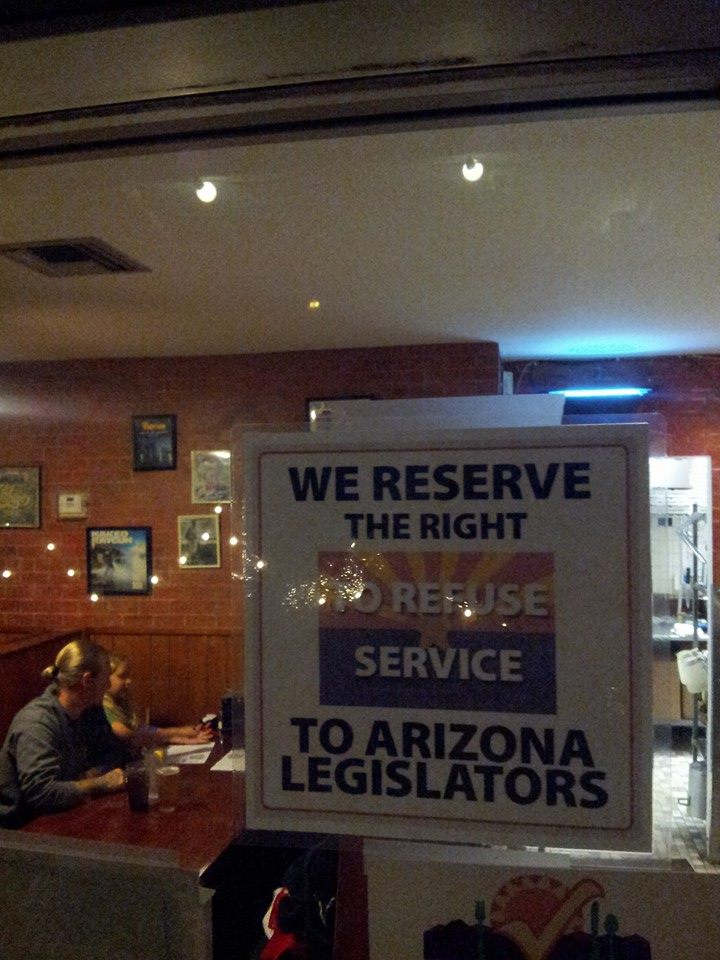
A local business in Tuscon, AZ posted its frustration with the bill before it was vetoed. (Facebook/Rocco’s Little Chicago Pizzeria)
Yesterday, Arizona Governor Jan Brewer vetoed a bill that would have allowed businesses to close their doors to gays and lesbians out of religious conviction. But the fight to pass such laws, packaged as reinforcing religious freedom, is still on in quite a few other states.
Similar legislation is under consideration in Georgia, Idaho, Mississippi, Missouri, and Ohio. Much like Arizona Bill 1062, none of these measures specifically spell out gays or lesbians as the target of the bill. However all would protect people making decisions—including whether or not to serve someone—based on their personal religious beliefs.
Measures were also introduced in Oregon and South Dakota that would allow businesses to deny services that support same-sex marriages. South Dakota’s bill has since been withdrawn. But efforts are being made to put Oregon’s measure on the ballot this November.
Business voices have an impact
In the case of Arizona, dozens of corporations and business groups—including Apple, Intel Corp., Verizon Communications, Southwest Airlines, Yelp, and Marriott, as well as the Arizona Chamber of Commerce, the business members of the Arizona Technology Council and Arizona NFL and MLB franchises—voiced opposition to the bill. Many companies cited the business impact of such a decision. Others, like Southwest Airlines, cited their company’s “core tenets of diversity and inclusion” in their letters of opposition to the bill sent to Governor Brewer before its eventual veto.
Organizations that “walk the talk” in their commitment to diversity and inclusion in the workplace make a difference well outside their walls. We’re proud of those companies that take a stand against any measures that—purposely or inadvertently—promote discriminatory practices. And we ask them remain vigilant. It seems we have a long way to go.






